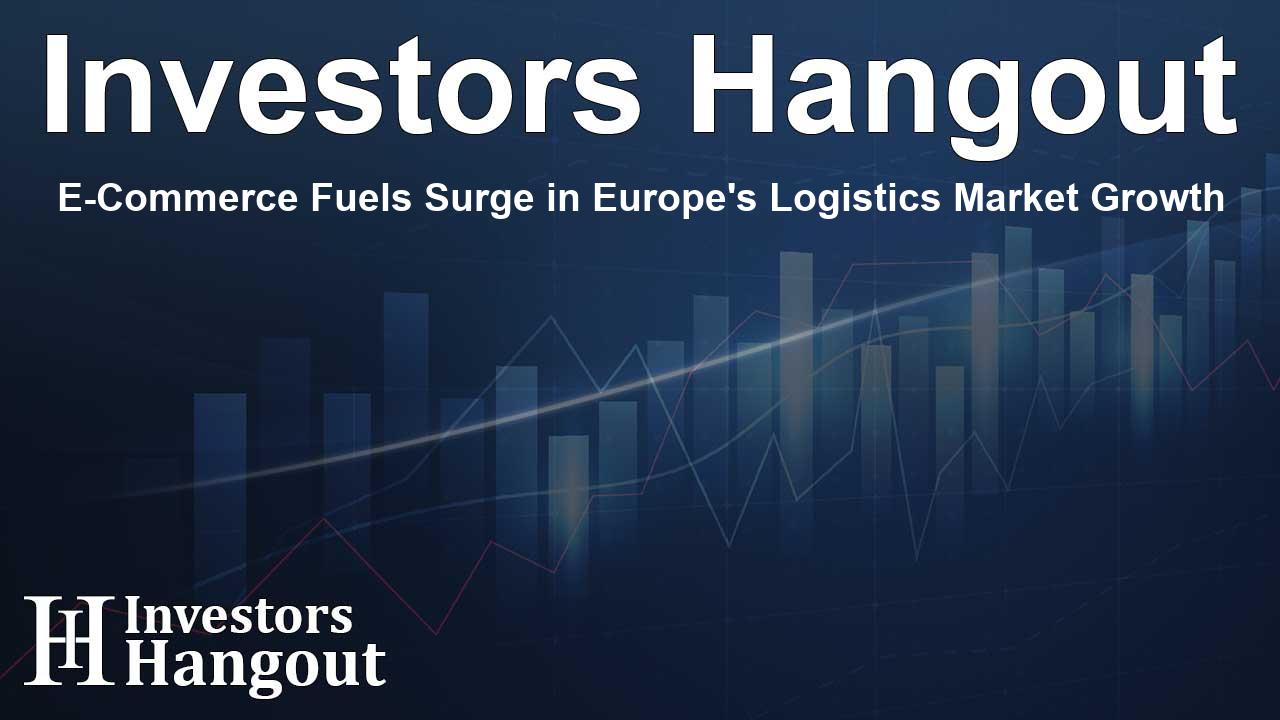E-Commerce Fuels Surge in Europe's Logistics Market Growth

Surge in Europe's Logistics Market Driven by E-Commerce
The logistics market in Europe is poised for remarkable growth, projected to expand by approximately USD 48.4 billion between 2025 and 2029. This growth trajectory, which reflects a compound annual growth rate (CAGR) of 3.4%, is predominantly fueled by the booming e-commerce sector. As consumer behaviors shift to favor online shopping, logistics systems are undergoing crucial transformations to ensure timely and efficient deliveries.
AI's Role in Market Transformation
Artificial Intelligence (AI) is playing a pivotal role in reshaping the European logistics landscape. AI technologies are enhancing supply chain transparency and efficiency, allowing logistics providers to better respond to dynamic market demands. These advancements facilitate smarter logistics by providing data-driven insights into consumer trends, helping firms optimize their operations.
Key Players and Market Dynamics
Some of the major companies spearheading this transformation include AP Moller Maersk AS, BDP International Inc., and FedEx Corp. These players are adapting to the increasing complexities of supply chains while competing against rising operational costs and the demand for customer-centric solutions.
Challenges and Opportunities in the Logistics Sector
Despite the positive growth outlook, the logistics sector in Europe faces several challenges. Efficient last-mile delivery has become critical due to the surge in e-commerce activities, requiring innovative logistics solutions that prioritize speed and reliability. Furthermore, the industry is now focusing on sustainability, with green logistics solutions gaining traction to reduce carbon footprints.
Segment Overview of the European Logistics Market
The logistics market spans numerous sectors including manufacturing, healthcare, and automotive industries. The rise of e-commerce is particularly reshaping distribution channels and logistics requirements. Segmenting the market based on type reveals a significant emphasis on third-party logistics (3PL), which offers specialized services tailored to customer needs, enhancing supply chain effectiveness.
The Future of Logistics in a Digital World
As Europe continues to navigate digital transformation, logistics providers are innovating rapidly to keep pace with technological advancements. The integration of Internet of Things (IoT) devices, along with AI and Blockchain technologies, is improving visibility and control over supply chains. This shift not only streamlines operations but also fosters enhanced collaboration between stakeholders.
Key Insights and Trends Innovating Logistics
Several emerging trends are reshaping the logistics landscape. These include increased reliance on automation and smart technology for inventory management, along with the adoption of advanced route optimization techniques. Additionally, logistics providers are becoming more agile, adjusting operations to match real-time consumer demands.
Importance of Customer-Centric Logistics
Today’s logistics environment demands a strong focus on consumer satisfaction. Firms are prioritizing customer feedback and analytics to refine their services, ensuring responsiveness to current market conditions. By implementing advanced technologies, logistics players are enhancing service delivery and providing solutions aligned with customer expectations.
Conclusion: A Bright Path Ahead
The European logistics market is experiencing an exciting period of growth and transformation driven by e-commerce and technological advancements. As companies invest in innovative logistics solutions and adaptive strategies, the industry is poised to meet ever-evolving consumer demands. This dynamic environment not only signifies a robust outlook for the logistics sector but also highlights the importance of strategic partnerships and technology-driven operations for future success.
Frequently Asked Questions
What is the projected growth of the logistics market in Europe?
The logistics market in Europe is expected to grow by USD 48.4 billion from 2025 to 2029, indicating a CAGR of 3.4%.
How is AI influencing the logistics market?
AI is enhancing supply chain efficiency, optimizing operations, and improving logistics visibility, thus significantly transforming the market.
What are the main challenges facing the logistics sector?
Challenges include the need for efficient last-mile delivery solutions, rising operational costs, and ensuring sustainability in logistics operations.
Which companies are leading the logistics market in Europe?
Key players include AP Moller Maersk AS, BDP International Inc., and FedEx Corp., who are actively adapting to market demands.
What trends are shaping the future of logistics?
Emerging trends include the adoption of green logistics solutions, advancements in automation, and a focus on customer-centric service delivery.
About The Author
Contact Riley Hayes privately here. Or send an email with ATTN: Riley Hayes as the subject to contact@investorshangout.com.
About Investors Hangout
Investors Hangout is a leading online stock forum for financial discussion and learning, offering a wide range of free tools and resources. It draws in traders of all levels, who exchange market knowledge, investigate trading tactics, and keep an eye on industry developments in real time. Featuring financial articles, stock message boards, quotes, charts, company profiles, and live news updates. Through cooperative learning and a wealth of informational resources, it helps users from novices creating their first portfolios to experts honing their techniques. Join Investors Hangout today: https://investorshangout.com/
The content of this article is based on factual, publicly available information and does not represent legal, financial, or investment advice. Investors Hangout does not offer financial advice, and the author is not a licensed financial advisor. Consult a qualified advisor before making any financial or investment decisions based on this article. This article should not be considered advice to purchase, sell, or hold any securities or other investments. If any of the material provided here is inaccurate, please contact us for corrections.
